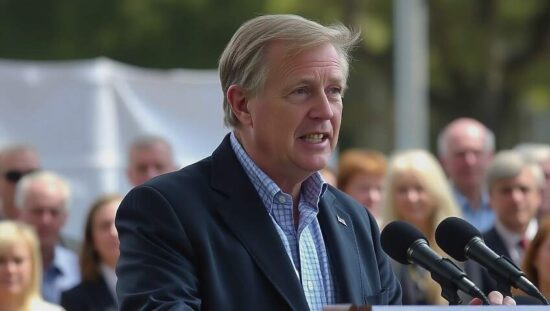The German steel industry faces an existential crisis and decisive political action is urgently needed, according to Bremen’s Mayor Andreas Bovenschulte. In a stark warning ahead of critical industry discussions, Bovenschulte urged the German government to proactively champion the European Commission’s proposed halving of import quotas, arguing that the sector’s long-term survival depends on it.
Bovenschulte criticized a tendency toward protracted debate and called for Germany to adopt a firm stance on the matter at the European level, emphasizing the need to wield “its entire political weight” to secure the proposal’s implementation. He expressed concern that a preoccupation with minor details risks paralyzing action and jeopardizing the industry’s viability.
Beyond import quotas, Bovenschulte delivered a pointed critique of Germany’s approach to US tariffs on steel imports. Departing from a strategy of implicit acceptance, he argued that the existing strategy of acquiescence toward Washington represents a “mistake” and advocated for renewed negotiations to challenge the 50% tariff on European steel.
While acknowledging the disruptive impact of state subsidies in China’s steel sector, Bovenschulte cautioned against immediate and sweeping sanctions. “I am skeptical of blanket sanctions” he stated, recognizing that industrial policy, including state support, is practiced globally, including within Europe. He stressed the need for a nuanced assessment determining when state intervention becomes illegitimate.
Echoing recent calls from Finance Minister Lars Klingbeil, Bovenschulte further demanded an immediate cessation of Russian steel imports into Germany. He condemned these imports as a circumvention of European sanctions policy and a contribution to the financing of the war against Ukraine, highlighting the frustration that individual EU member states have thus far blocked this crucial measure. “This is untenable” he asserted.
Bovenschulte also addressed the crucial issue of electricity pricing, emphasizing the need to guarantee a long-term, stable industrial electricity price. While recognizing the projected 2026 target of approximately five cents per kilowatt-hour, he insisted on a commitment spanning at least ten years to provide companies with genuine investment security, contrasting this with the current three-year projection. Failure to provide this long-term certainty, he warned, risks undermining critical industry investment.





